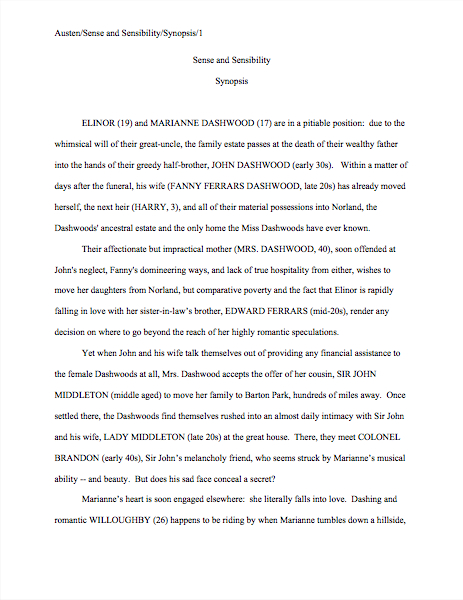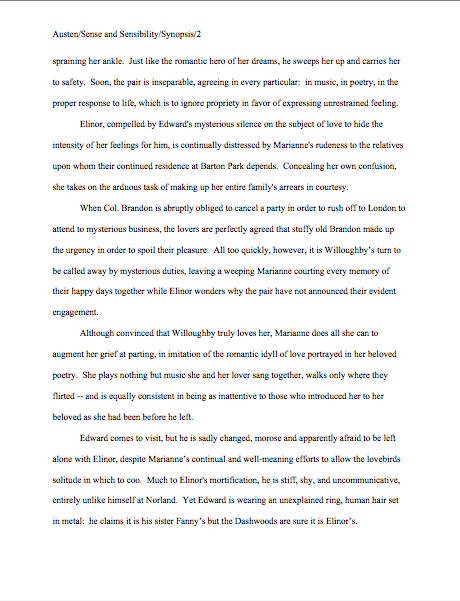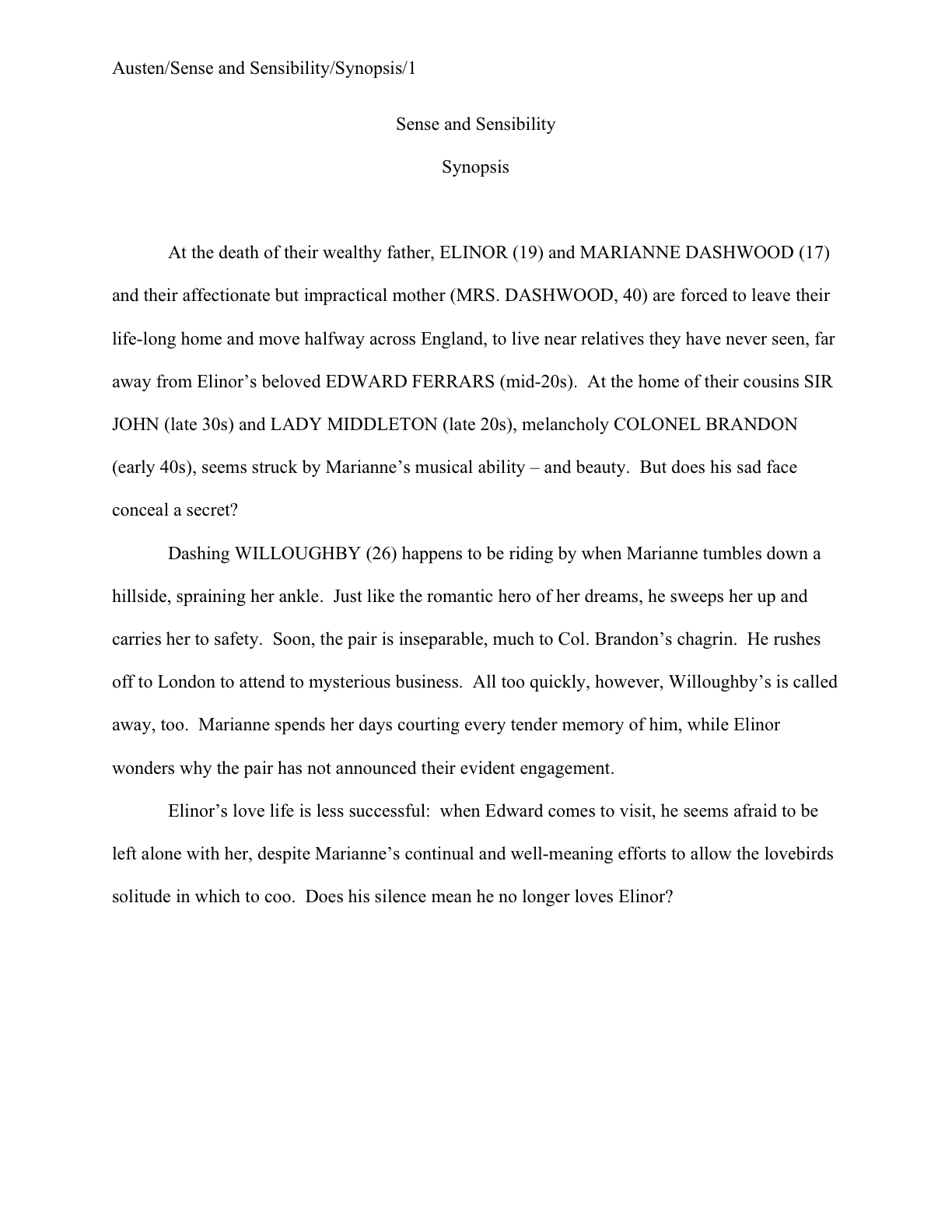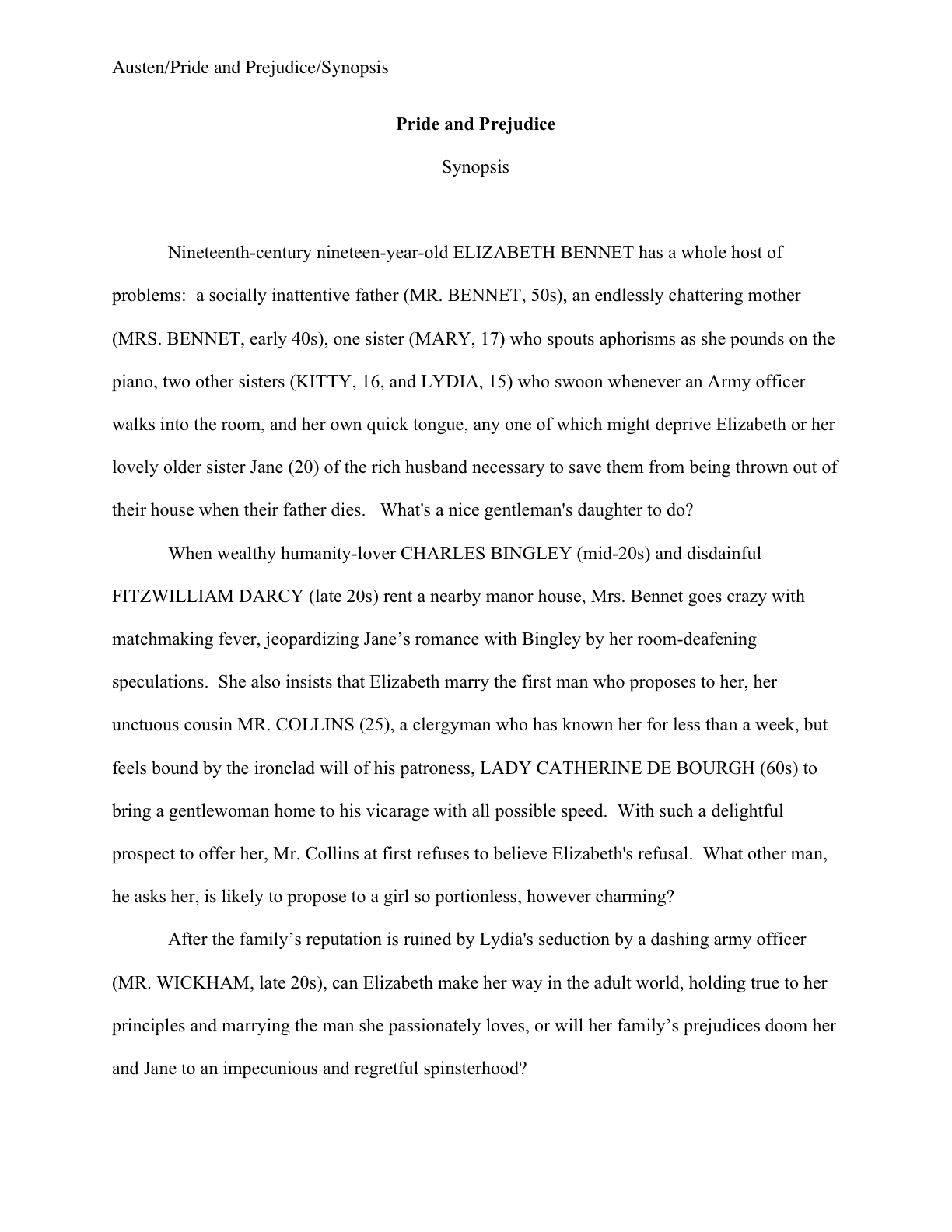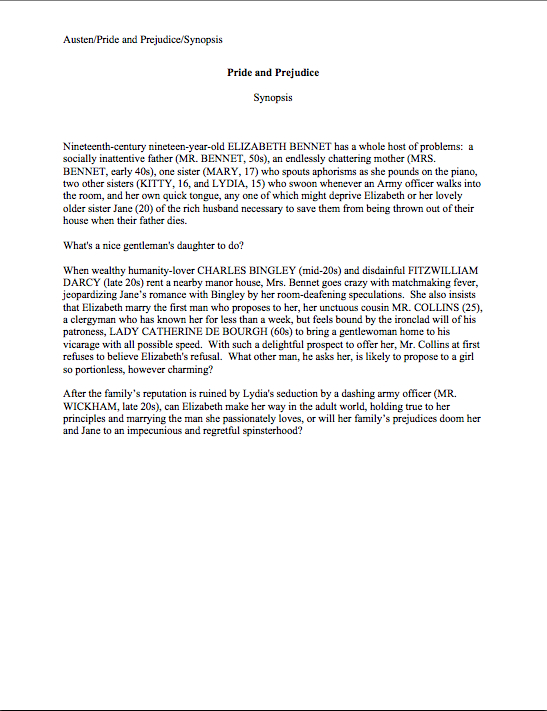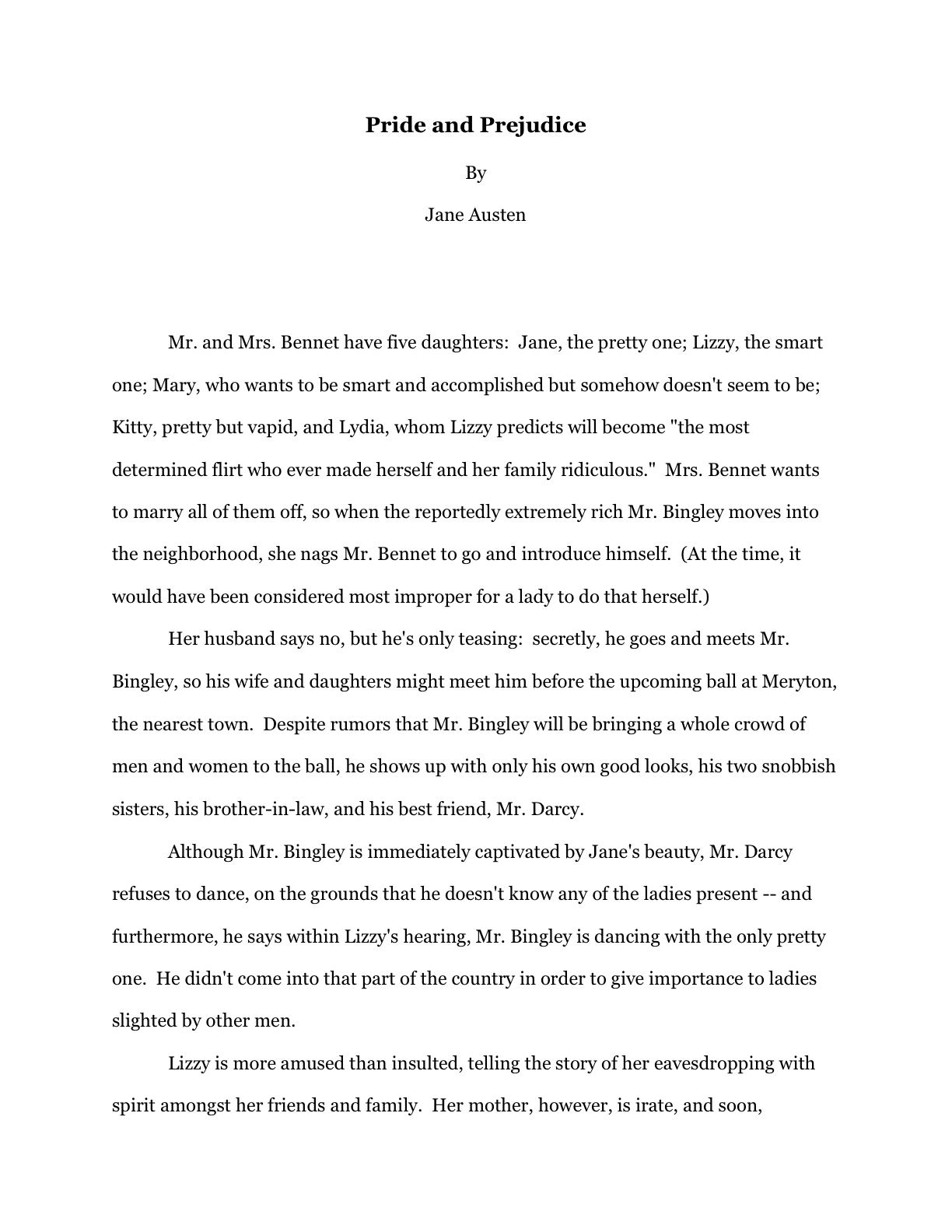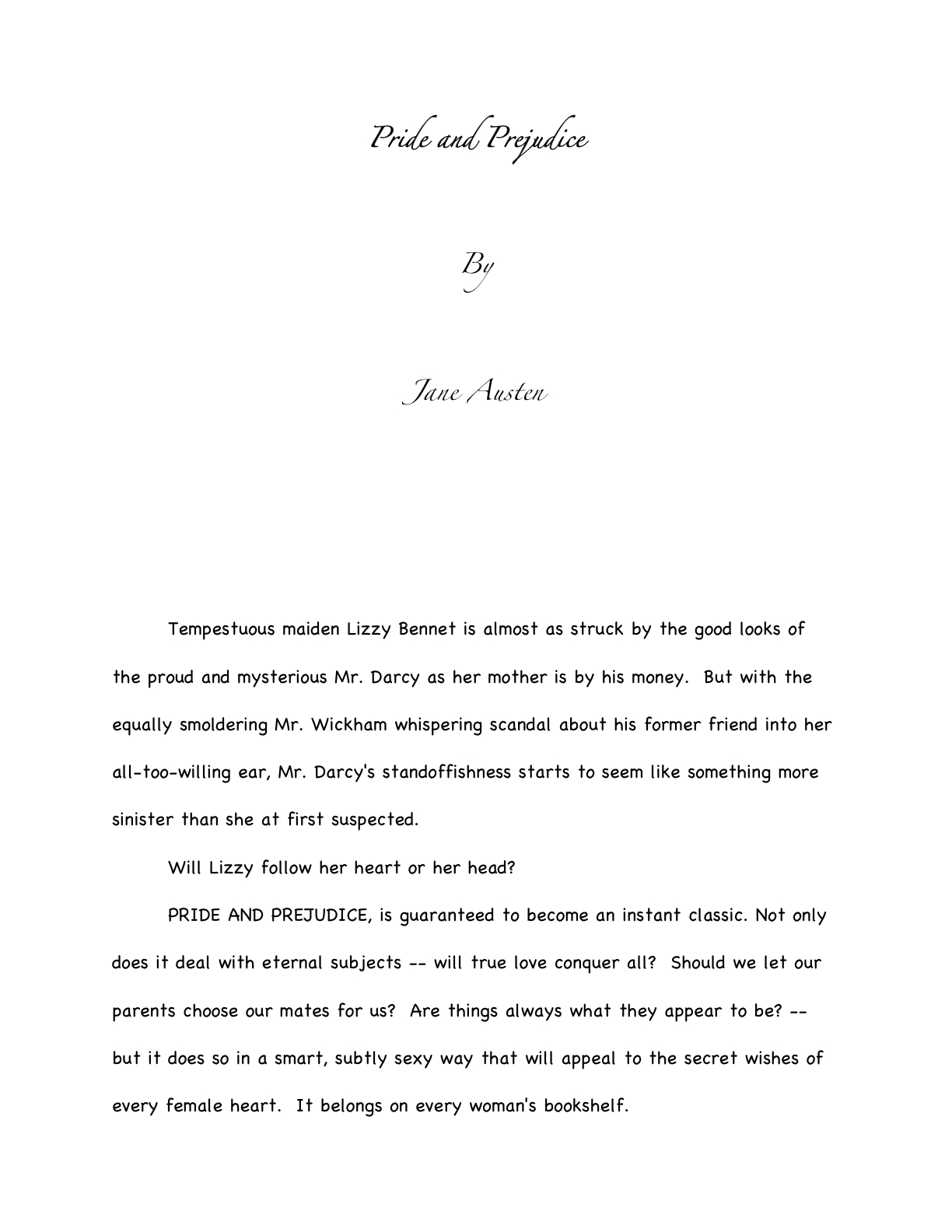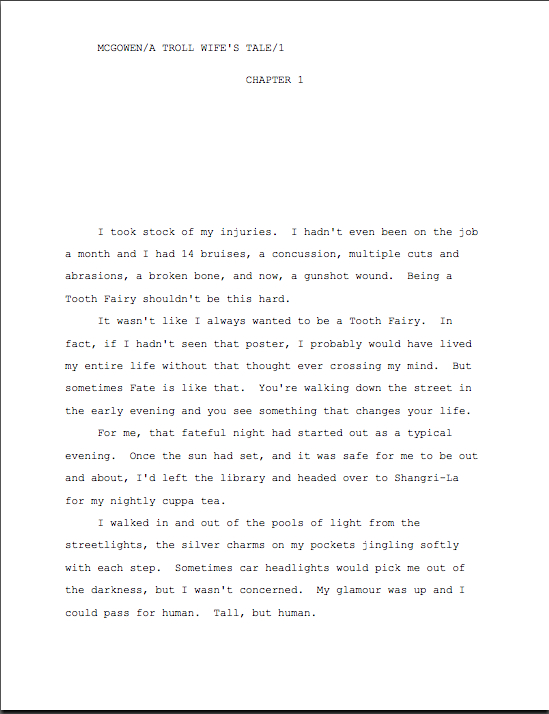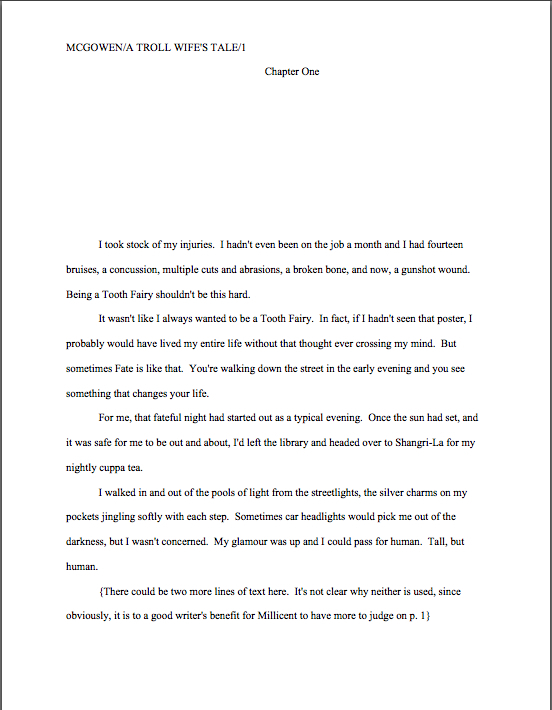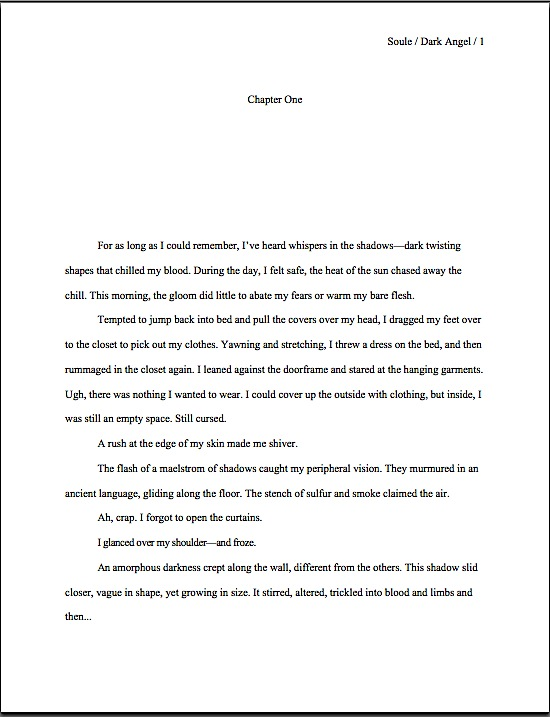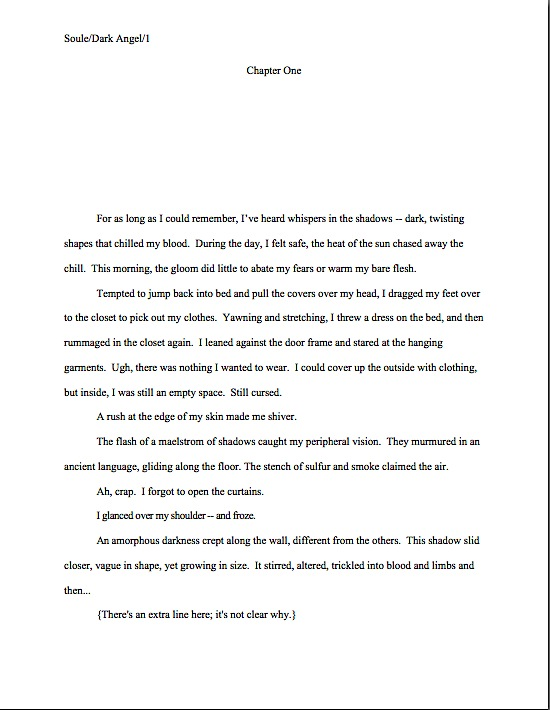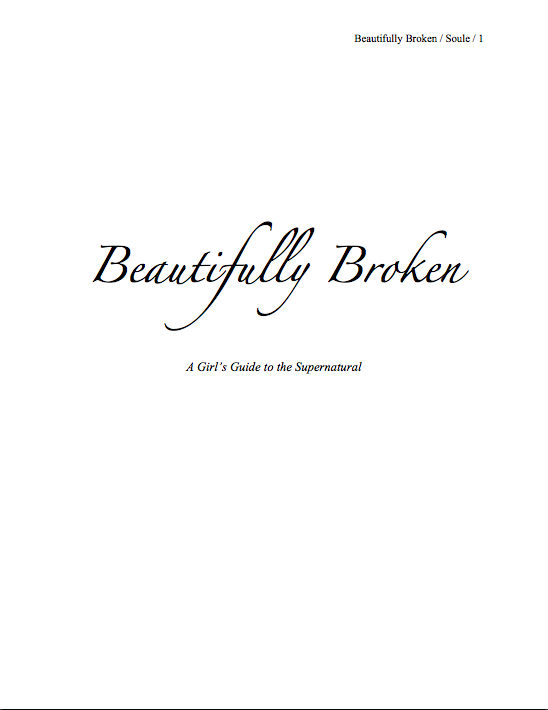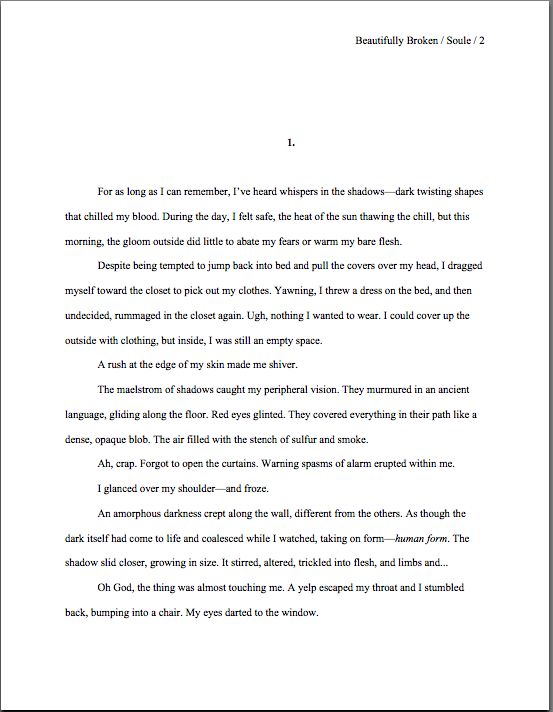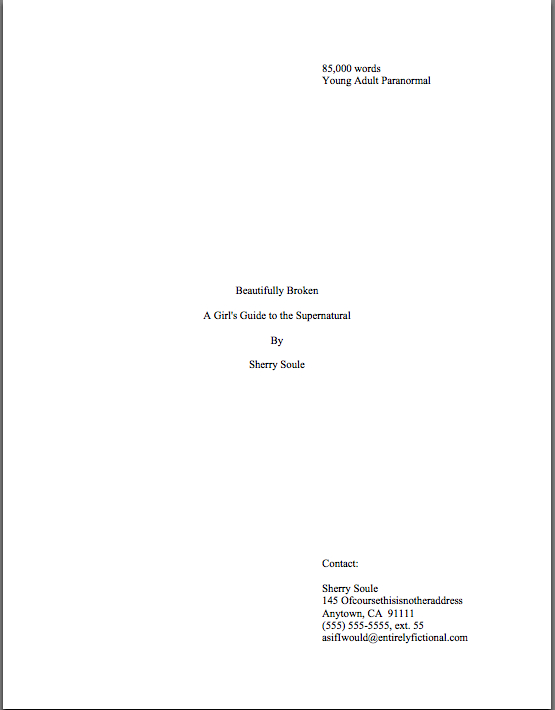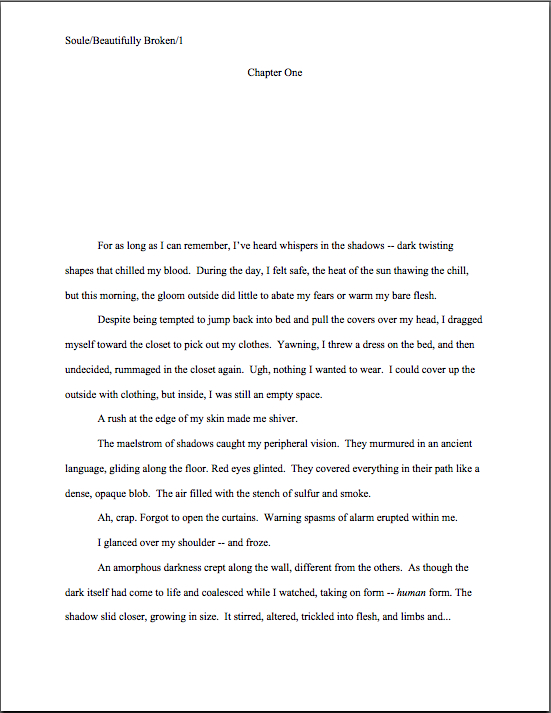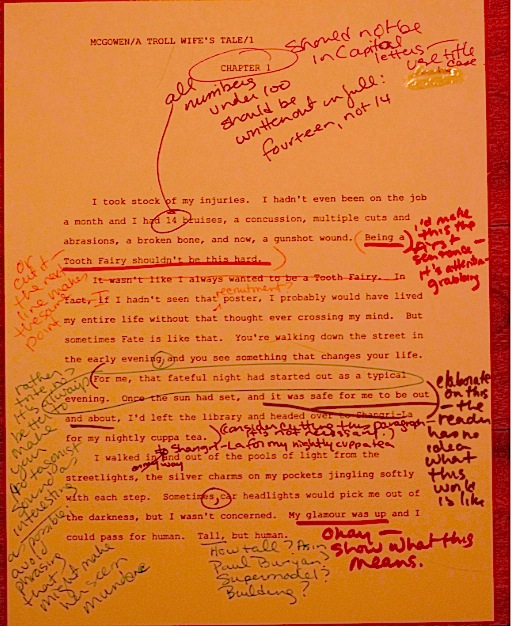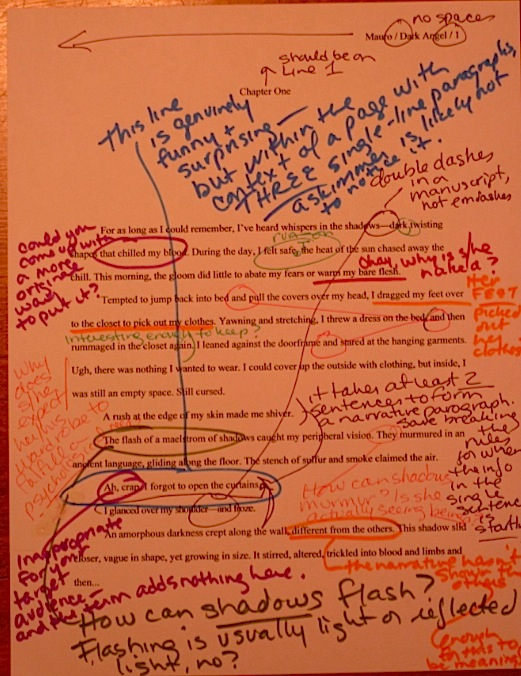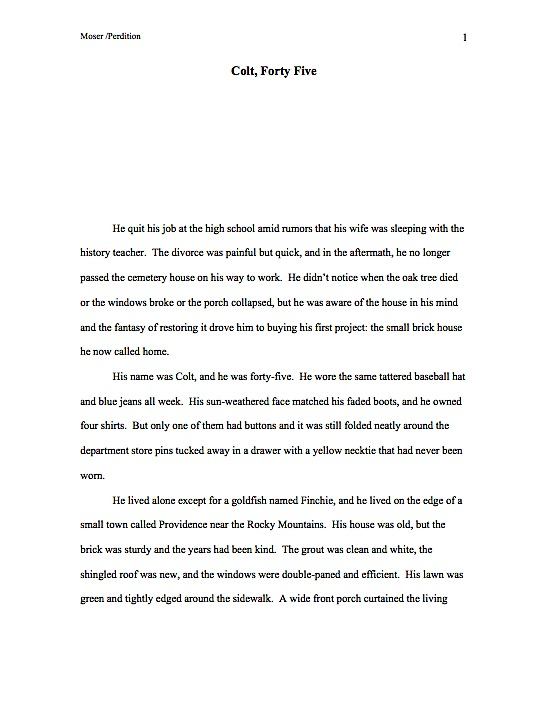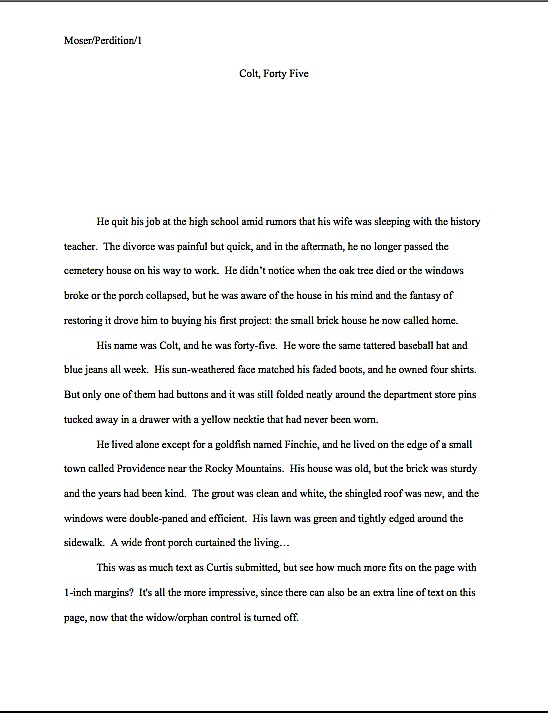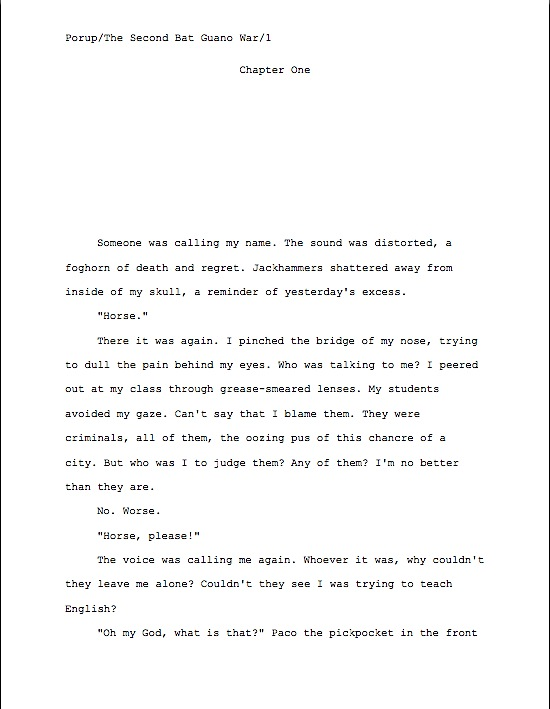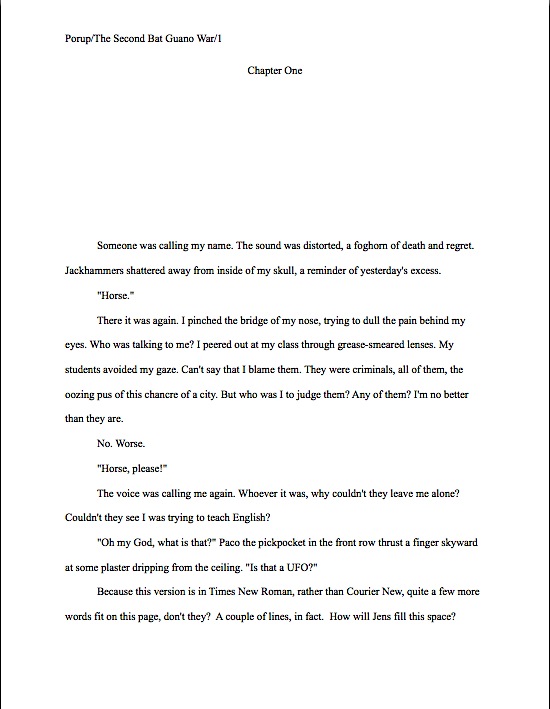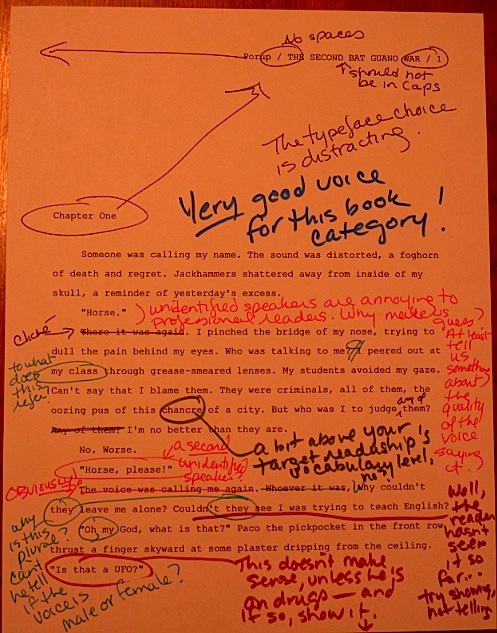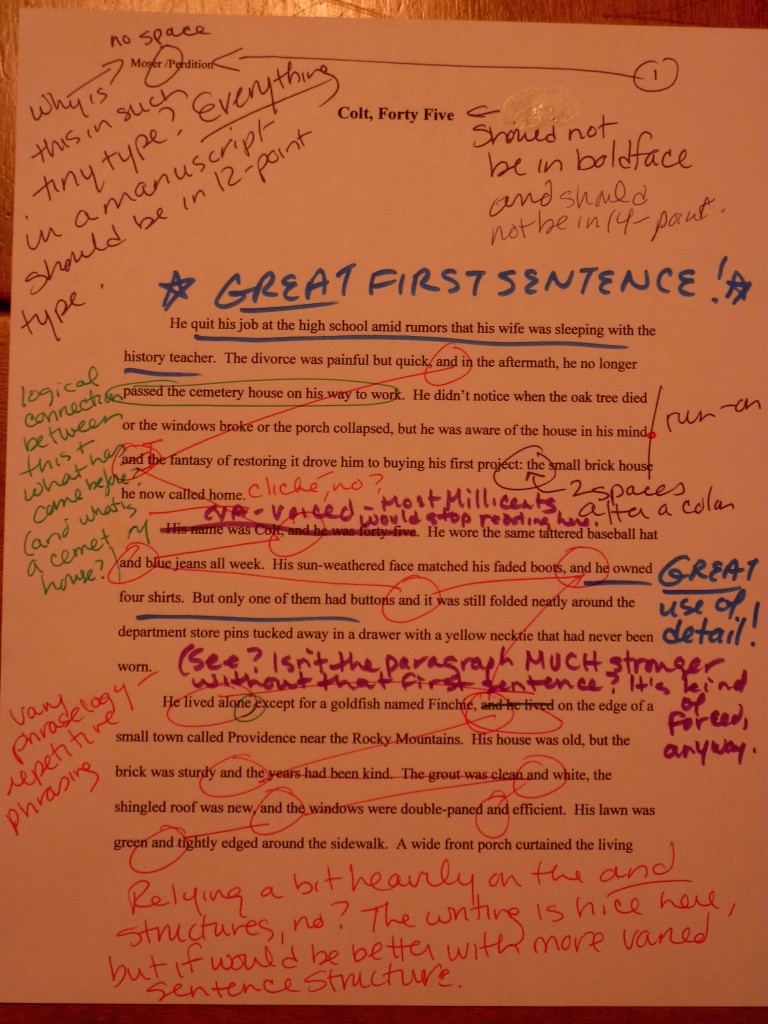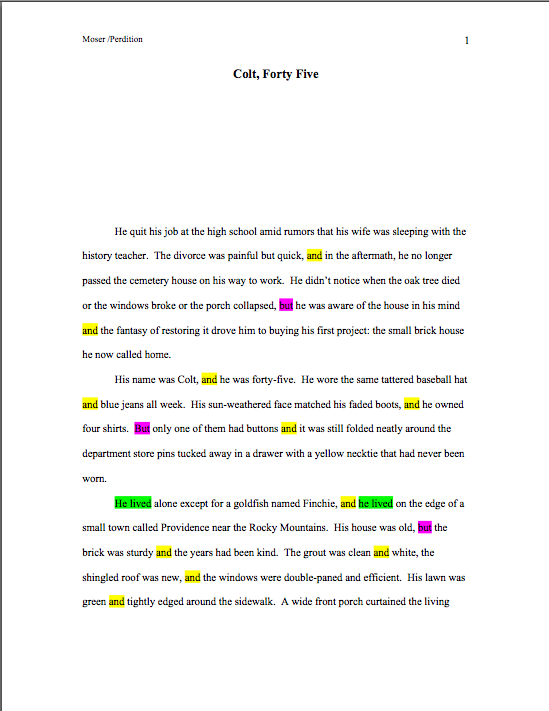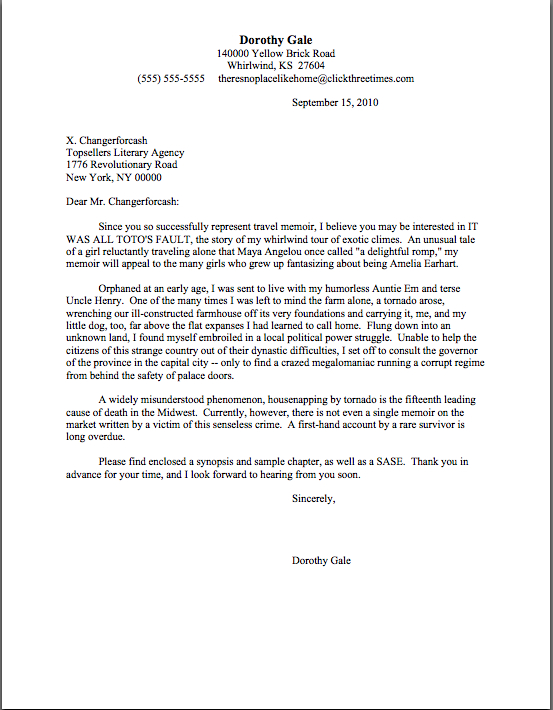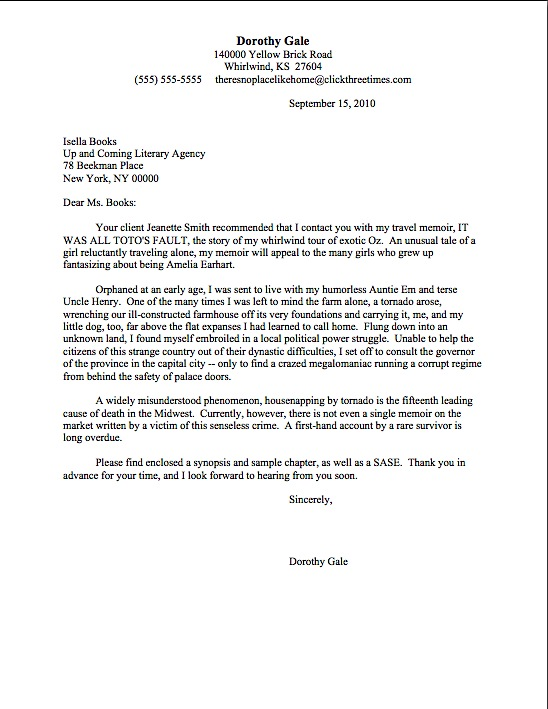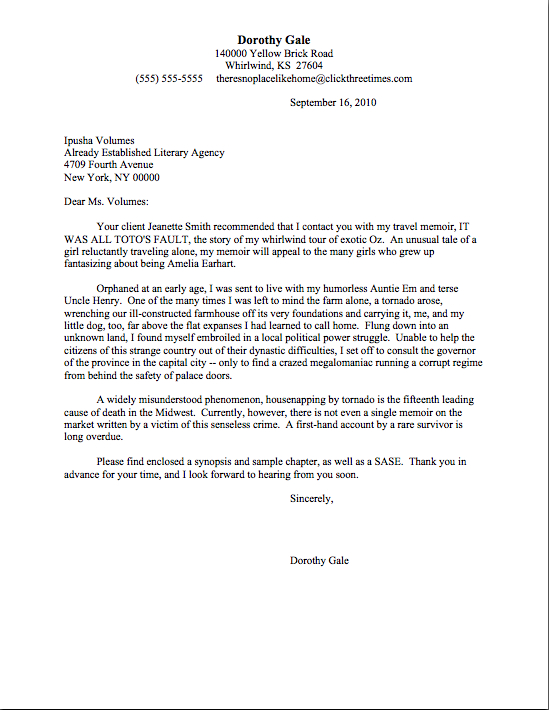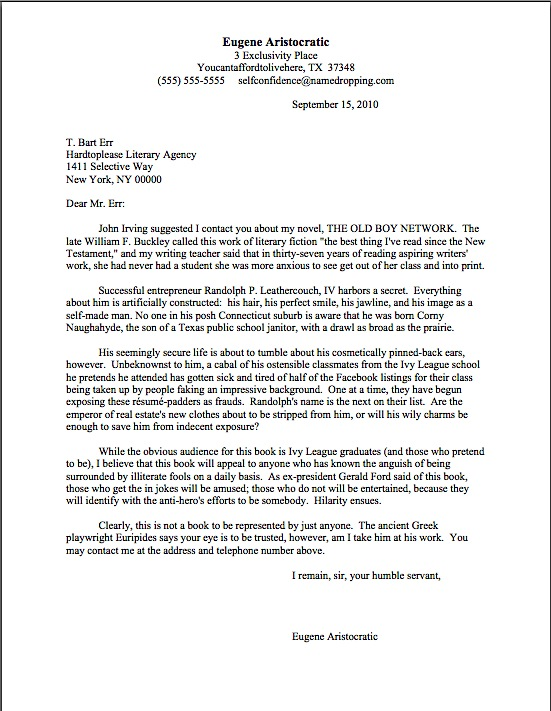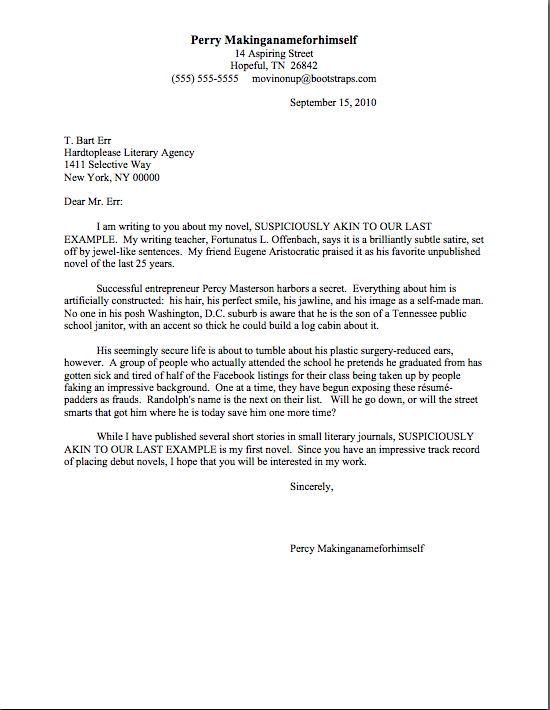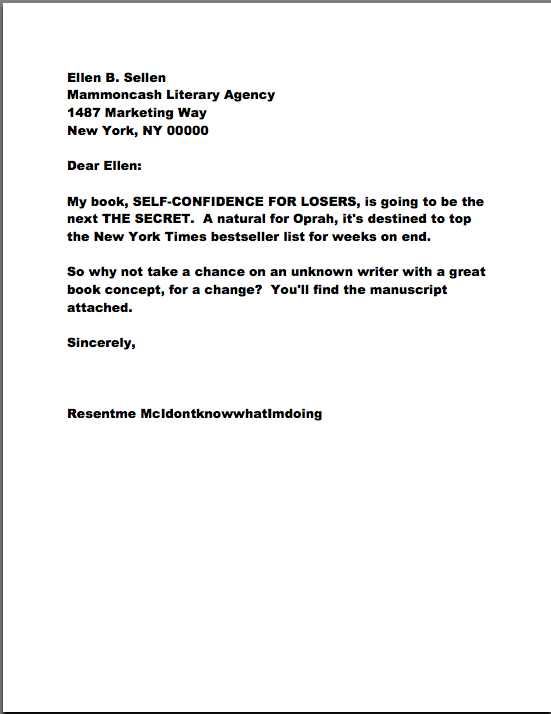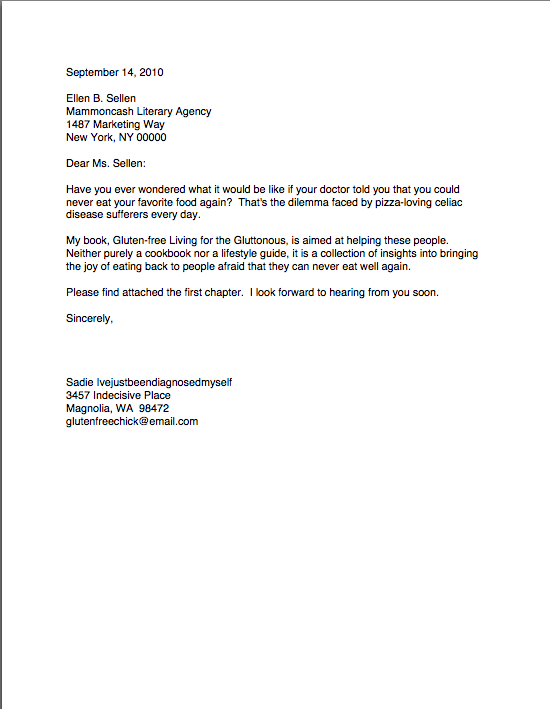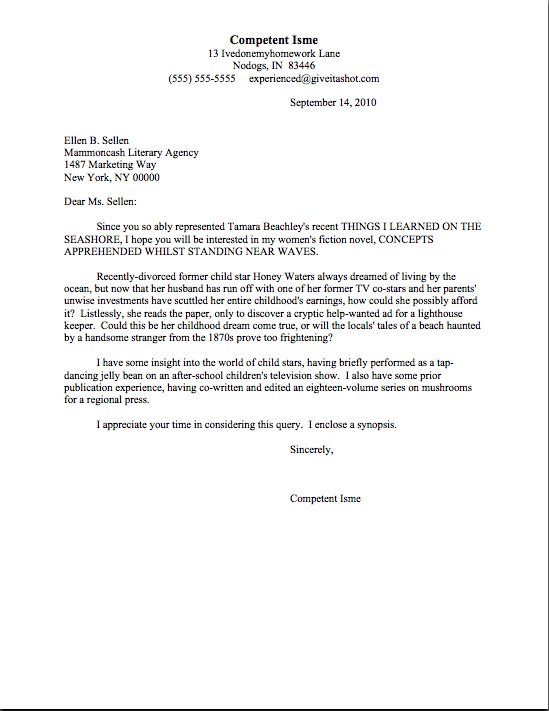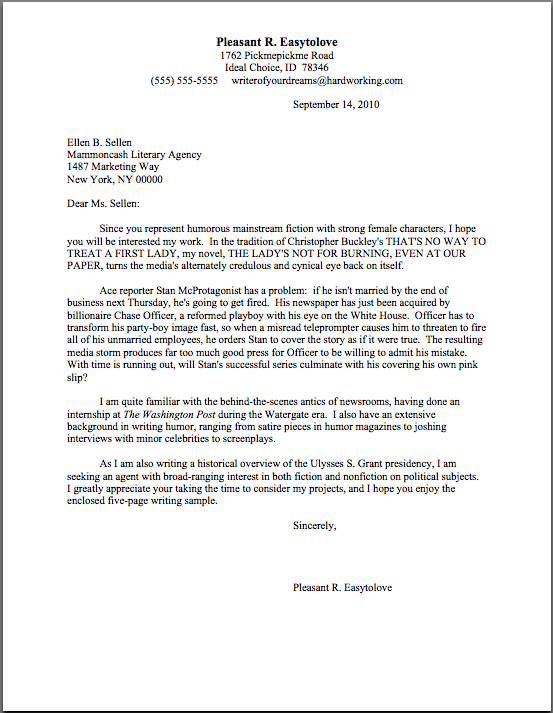
Well, that was an unexpected blogging hiatus, wasn’t it? I plead ambitiousness: in addition to prepping for this coming Saturday’s at the master class on querying at Words & Music conference in New Orleans, I have also been gearing up for the close textual analysis component of the third-place prizes in the Author! Author! Great First Pages Made Even Better Contest. Since giving feedback on the winning entries is so rightfully time-consuming — and something that I was not originally going to do alone — I’ve kept telling myself, “Oh, you need a few solid hours to devote to this — you can fit that in tomorrow.”
Then tomorrow came…and the day after…and before I knew it, a few days had gone by between posts. Sorry about that. I should have a few hours this evening to leap into that much-anticipated close textual analysis.
Just in case I get distracted again (what’s the probability?), I wanted to post again this morning on our ongoing topic, how to find agents for your query list. Because, let’s face it, even if you weren’t planning to drop by the Hotel Monteleone Saturday afternoon at 3:30 p.m. for a crash course in querying, there’s nothing like talking about what kind of agent is right for your book to get one’s momentum going for that end-of-the-year querying push.
You were planning an end-of-the-year querying push, were you not? Or a beginning-of-next-year one? If not, why not?
Last time, I mentioned that, contrary to popular belief amongst aspiring writers, a great big agency is not necessarily the best choice for any particular book project, any more than signing with just any agent is a sure path to publication. While queriers, understandably, tend to focus on how picky agents are about what projects they take on, it’s worth giving some serious thought at the query list-generating stage to what kind of agency — and agent — is most likely to have the connections not only to sell your book well, but to walk you through the often difficult and perplexing publication process.
So while admittedly every agency — and indeed, every agent — is different, let’s spend this morning pondering some sweeping generalities about size, shall we?
I am certainly not the first to write on this topic, nor, I suspect, the last. Writers’ periodicals seem to have an especial fondness for the issue — so much so that I sometimes wonder if a visiting alien picking up a writers’ magazine would not automatically assume that every writer in America chooses representation based upon size alone.
It’s a big country, the alien might reason. They like everything big.
There are, of course, some reasons for this preference — and not just because it’s kind of cool when you mention your agency at writers’ conferences or industry parties and people say, “Oh!” as if they’ve just learned that you won the silver medal in pole-vaulting two Olympics ago. (Although admittedly, that’s gratifying.)
As the client of a large agency, a writer does enjoy many benefits: the prestige of signing with a recognized name, more support staff to answer your questions (or not, depending upon prevailing attitudes), and often more collective experience upon which you can draw. Just as with a well-known agent, in going with a major agency of good repute, you are working with a known quantity, with verifiable connections.
Emphasis on connections. Read Publishers Weekly or Publishers Marketplace for even a couple of months — not a bad idea, by the way, if you intend to stick with this writing gig for the long haul — and you’re likely to notice the same agency names turning up again and again, coupled with particular publishing houses. Agencies do specialize, and obviously, it’s in a writer’s interest to be affiliated with one of the top agencies for her book category.
Even when an agency does not focus on a particular category to the exclusion of others, the agents within it often will — and that, too, sets a discernable pattern. It’s not at all uncommon for an editor who concurs an agent’s literary tastes to buy books from several of his or her clients.
Which makes a certain amount of empirical sense, right? There isn’t universal agreement across the industry about what constitutes good writing, even within a single book category. Individual tastes differ, and what one editor at Random House likes to see in a mainstream novel will not necessarily be what an editor at HarperCollins is seeking. If Editor Sam already knows from past acquisitions that she likes the kind of books that Agent Maureen enjoys, Sam is probably going to be more open to a pitch from Maureen than one from Agent Joe, who hasn’t sold her a book before.
Remind yourself of this dynamic, please, the next time you hear an agent say at a conference that a particular kind of book just can’t be sold anymore. What this usually means is that he would have trouble selling it to his already-established editorial connections.
How is a savvy querier to find out what connections any given agent has? Chant it with me now, long-time readers: research.
And I’m not just talking about plugging a book category into a search engine or Googling literary agency, either: I mean going through the standard agency guides, reading carefully through agency websites, checking the acknowledgements pages of first and second books by authors in your category. In order to track down who might be able to sell a book like yours right now, you will — wait for it — need to find out who has been selling books like yours recently.
At a big, well-established agency, this information is usually pretty easy to track down: my great big agency, for instance, simply lists its clients on its website (although the list is not always current). With a new agency, it can be harder to assess connection claims until a track record of sales has been established.
Don’t write off an agency just because it is new or small, however. As I mentioned last time, it’s not uncommon for a successful agent to break off and form her own agency, taking her connections — and often her clients as well — with her.
At the moment, there seem to be many more new agencies than usual; since the economic downturn, quite a few agents have been branching off on their own. (This is one reason why, in case you were wondering, I like the Publishers Marketplace database so much — you can look up agents by name, not just by agency, so you can see how their representation preferences change as they move around. An agent with a passion for SF might not be able to give free rein to it as the junior agent at an agency that specializes in mysteries, but might well have leapt into SF after a promotion or move elsewhere.)
That can be a good thing for a querying writer: often, new agencies are actively seeking out new clients. As are, typically, junior agents even at large agencies, so don’t overlook the young and the hungry.
The hungry can be excellent gambles — they are often more energetic in pursuing sales. Even if a relatively new agent does not appear to have a long solo track record, check her bio: a lot of junior agents were formerly assistants at large agencies. (Or even Millicents. Hey, everyone has to begin somewhere.)
An former assistant may well walk into her first solo gig with some pretty good connections already established. She may well be more open to first-time authors than her better-known counterparts. In fact, she may be counting on discovering the next Great American Novel in her inbox — and with good reason: lest we forget (because it’s not mentioned much at writers’ conferences, for some reason), how many of the big agents initially established themselves in the industry was by taking a chance on an unknown client who turned out to be a major author.
So f your book sells quickly and/or well, you can be the favorite steed in the shiny, new stable. Which probably means you and your work will get more attention than with a similar achievement at a larger agency, where you would be just one of their in-house stars.
Even before that (and frequently after as well), a hungry agent often offers services that a bigger agency or a busier agent might not provide. Intensive coaching through rewrites, for instance. Bolstering the always-tenuous authorial ego. Extensive free editing. (If you missed my earlier discussions of fee-charging agencies, or you are unfamiliar with how much freelance editing can cost, you might want to check out the relevant categories on the archive list at right before you discount the value of such an offer.)
This is more a matter of math than a matter of nice: an agent with 10 clients is going to have a lot more time to devote to these helpful services than an agent with 80. If you are a writer who wants a lot of personal attention from an agent, the less busy agent might well be the way to go.
Does it seem presumptuous to think about what an agent can offer you, rather than what you can offer an agent? To the kind of thoughtful querier who knows better than to send out rude letters that say things like, “This is the next bestseller!” it often does. (Begging for attention for a good long while can do that to you.)
But think about it: if you are a writer lucky enough to garner multiple representation offers — and let’s all keep our fingers crossed for that — do you really want to realize with a shock that you do not have any criteria for picking an agent other than the willingness to say yes to you?
Stop laughing; established authors don’t admit this much, but this is not an uncommon dilemma for good writers to face. It certainly happened to me. Some years back, I received simultaneous offers from three agents, each of whom was apparently a nice person AND I had researched enough to know that each had a dandy track record selling the kind of book I had been pitching them — and I was stunned to recognize that I was utterly unprepared to judge them on any other basis.
Fortunately, I had many agented friends eager to offer me advice. Mountains of it, in fact. But that’s a luxury not every writer has.
So believe me when I tell you: giving some advance thought to what you want from your future agent, over and above the willingness and ability to sell your book, is not a symptom of creeping megalomania. It’s a means of coming to understand the value of your work and how it might conceivably fit into the already-existing literary world.
It can also, to descend from the heady heights of hope for a moment, give you some solid clues about how to prioritize a lengthy potential query list. It would be prudent, for instance, to consider very, very carefully how important personal contact is to you, because if this relationship works out, you will be living with your decision for a very long time.
Will you, for instance, go nuts with speculation if an editor has your manuscript — and you haven’t heard from your agent in a month? Many writers would, you know; I’ve heard justifications by authors of manuscripts that have been sitting on an agent’s desk for 4 or 5 months that positively rival the tales of the Brothers Grimm for invention.
The actual reason a writer hasn’t heard back tends not to be all that interesting, by comparison: typically, if you haven’t been told yea or nay, the submission has yet to be read. The paperweight was invented for a reason, you know: to keep bits of unread manuscripts from migrating all over agents’ and editors’ desks.
Once you have established where you fall on the update-need continuum, there are other questions to ask yourself. Do you want to hear the feedback of editors who have rejected your work, so you can revise accordingly, or would you rather get through as many submissions as quickly as possible? Would you prefer an agent who wants to micro-manage your book proposal, guiding you through its steps, or would you be happier with one who leaves more of the writing decisions to you?
How prone are you to ask questions or take concerns to your agent? When you do, would you be happy with the occasional e-mail to answer your questions, or would you prefer telephone calls? (If you live outside the United States, this last question is even more essential: the farther away you reside, the less likely it is that you will ever meet your agent face-to-face, right? Many small agencies would not be able to afford unlimited international phone calls.)
The answers to all of these are very much dependent upon how busy the agent is, and what kind of demands the agency places upon her time. Generally speaking, the bigger the agency, the busier the agent.
Seems a bit counter-intuitive, doesn’t it? Big agencies have greater resources for support staff (or did before the economic downturn), whereas in a small agency (or with a stand-alone agent) the agents may be doing support work as well; it would make sense if the small agency agents were busier.
However, nowhere is the old adage tasks expand in direct proportion to the time available to perform them more evident than in the publishing industry: as an agent becomes more important, he takes on more clients. Big equals powerful here.
There are exceptions to this rule, of course. A few boutique agencies deliberately keep themselves small in order to occupy a very specific niche, but it is rare.
There’s no mistaking these agencies — they ALWAYS identify themselves as boutique in their blurbs, lest anyone mistakenly think that they were small because they were unsuccessful. Often, they sharply limit the proportion of unpublished writers that they will represent, or do not represent the unpublished at all. They do, however, tend to lavish attention upon the few they select.
As do, admittedly, some agents at major agencies, but do bear in mind that no matter who represents you, no matter how much your agent loves your work, you will be only one of the authors on the agent’s list. Time is not infinitely flexible, despite anyone’s best intentions.
So before you set your heart upon a big agency or a major agent, it’s a good idea to ask yourself: do I really want to be someone’s 101rst client?
This sounds like a flippant question, but actually, it is a very practical one, and one that speaks very directly to your personal level of security about your work. Big agencies and important agents have made their names, generally speaking, on high-ticket clients; often, that high-recognition client is why aspiring writers covet their representation skills.
However, it takes time to cater to a bigwig client. I once had a lovely chat with a past president of AAR who handled one of the biggest mystery writers in the biz; apart from handling her book negotiations, he told me, he also spent a week a year with her in a mountain retreat — not skiing, but micro-editing her next work to make its market appeal as broad as possible.
Nice perq of fame, isn’t it? Beulah, peel me a grape.
Before you float off into fantasies about being successful enough to command your own personal slave copyeditor and/or mountain lodge, stop and think about the implications of being one of this agent’s other clients. That’s a week a year when he is not available to pay even the most fleeting attention to the needs of Clients 2 – 143.
So who do you think ended up handling those other clients’ concerns? That’s right: not the bigwig agent at all, but his I’m-working-my-way-up-the-ladder assistant. Who was, to put it mildly, somewhat overworked — and ended up moving on to become a full agent at another agency within the next year or two. She’s so successful now that she is no longer accepting new clients.
Which raises an interesting question: if a writer is actually dealing most of the time with the agent’s assistant, rather than the agent, with whom is the long-term, mutually beneficial interaction occurring?
Still, you cannot deny the appeal of the contacts and oomph of a big agency, even if you are not represented by the most important agent in it. Ultimately, it’s going to take more than enthusiasm about your project for an agent to sell your first book.
It’s going to take connections — the right connections for your project. You don’t have to attend very many conferences before you meet your first hungry new agent, willing to promise the moon, nor to meet your first 100-client bigwig. It’s in your interests to look beyond the generalities.
Again, chant it with me now, campers: there’s no such thing as an agency that’s perfect for every single conceivable book. This process is — or should be — about finding not just acceptance, but forming the best possible alliance with someone who is going to help you build a career as a writer.
Give some hard thought to how you want to be supported on that path, and make your querying choices accordingly. Keep up the good work!






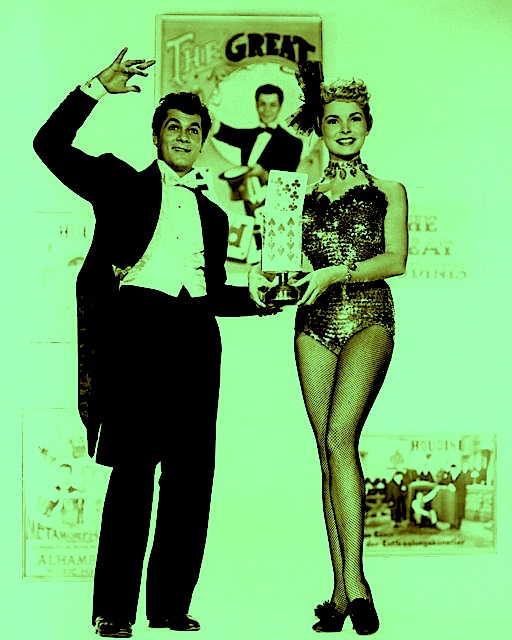


 Unless an agency states SPECIFICALLY in its agency guide listing or on its website that it insists upon an exclusive for any submission it considers, these days, it is assumed that a market-savvy writer will be sending out simultaneous queries.
Unless an agency states SPECIFICALLY in its agency guide listing or on its website that it insists upon an exclusive for any submission it considers, these days, it is assumed that a market-savvy writer will be sending out simultaneous queries. 


